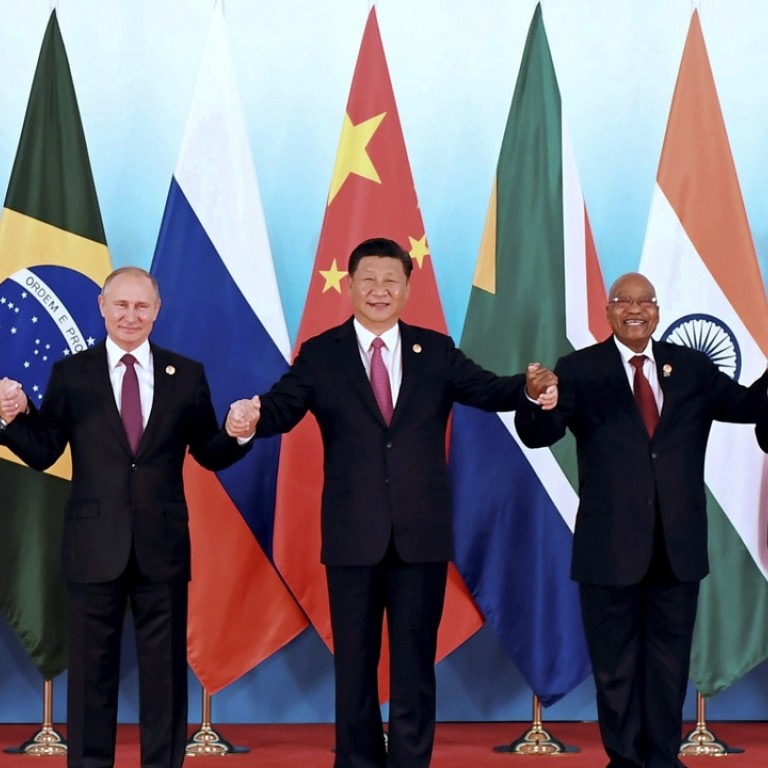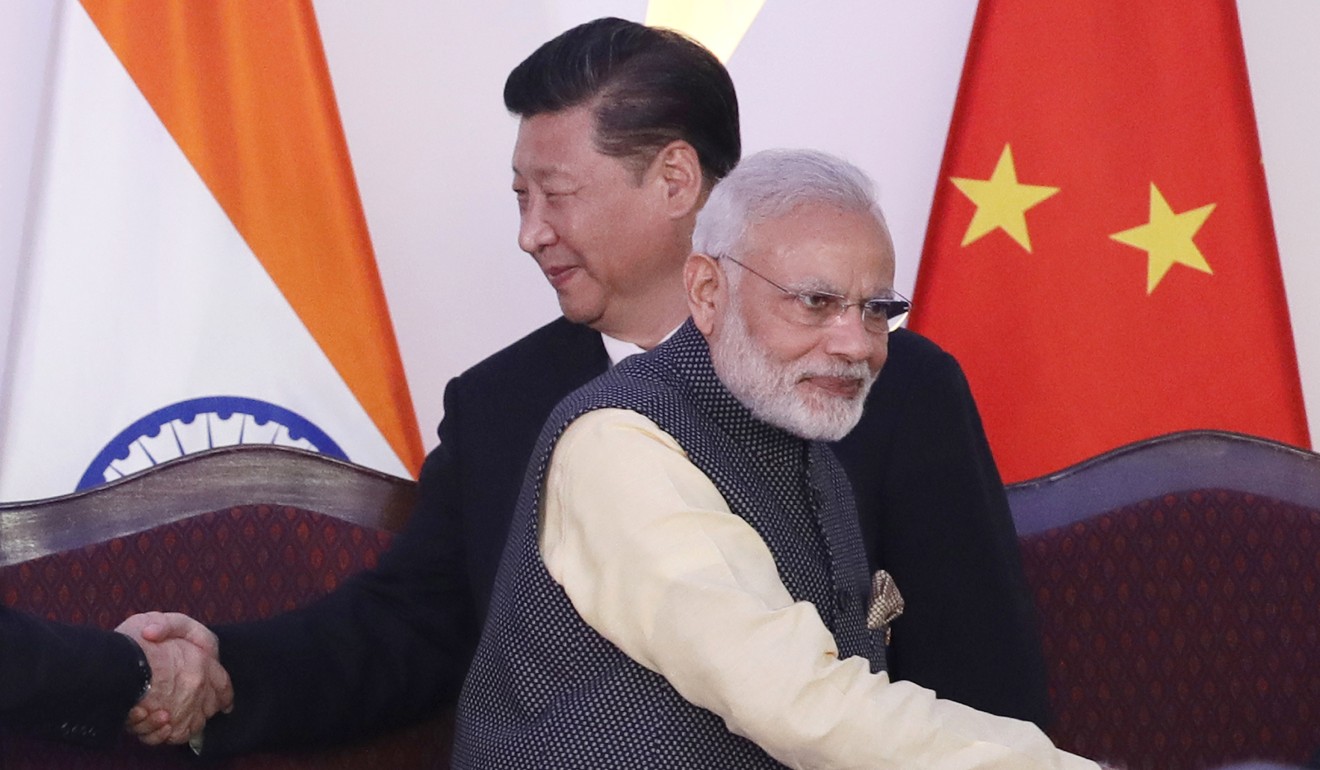
Building a bigger, better BRICS wall against the West’s global order
Beijing wants the group of developing countries to have a wider vision and input but the members must overcome diverging interests
It started out with high hopes. In the aftermath of the 2008 financial crisis, the world’s five fastest growing developing economies came together to mount a united challenge to Western dominance of global institutions.
Seven years on and much of the shine has come off the BRICS club of Brazil, Russia, India, China and South Africa. Political and economic uncertainties at home and geopolitical rifts between some members have exposed weaknesses in the bloc, raising doubts over its future.
But Beijing is not ready to let BRICS crumble just yet. At the bloc’s latest summit in Xiamen, Fujian province, last week, China tried to breathe new life into the group by expanding its scope and agenda. The goal is to make it a global grouping to counterbalance the Western-dominated order.
Under the “BRICS Plus” banner, China invited five more developing countries – Egypt, Guinea, Mexico, Tajikistan and Thailand – to the meetings.
Chinese President Xi Jinping also announced US$80 million in investment in BRICS projects, with another US$500 million in funding for wider South-South cooperation.
In addition, the bloc made a prominent stand on hot-button international issues such as North Korea and terrorism.
Zhang Yansheng, chief researcher at the China Centre for International Economic Exchanges, said the “BRICS Plus” approach was an attempt to attract more developing countries and emerging economies.
Zhang Baohui, an international affairs expert at Lingnan University in Hong Kong, said China was “ambitiously presenting itself as a leader of the world, and the leader of the developing countries”.
“The effort to expand and add substance into the BRICS mechanism was just to keep it going,” he said.
The bloc has lost momentum over the years as some members have struggled with weaker economic growth and their priorities have diverged. The economies of China and India have continued to perform well, but Brazil and South Africa are grappling with economic crises, and low commodity and oil prices – making it difficult for them to contribute to the bloc.

Meanwhile China and India have turned against each other, rowing over a Himalayan border for more than two months before hastily patching things up just days before the summit.
“Beijing wants to take the lead in the bloc, but a big and powerful BRICS led by China is what India would try the best to avoid,” Zhang Baohui said. “So New Delhi would not want BRICS to strengthen too much.”
Russia is also not so keen to become China’s follower, according to Li Lifan, an international relations researcher at the Shanghai Academy of Social Sciences.
“Russia’s focus is the Eurasian Economic Union led by Moscow,” Li said.
At the same time, BRICS has put some runs on the board.
Bloc members now have a bigger say at the International Monetary Fund and have gained some favourable terms at United Nations’ climate change talks.
Zhou Qiangwu, head of the International Economics and Finance Institute, a think tank under the Ministry of Finance, said BRICS also made a united call for globalisation and against protectionism at the G20 summit in Hamburg in July.
In addition, the bloc has set up counterterrorism and drug control coordination groups, agreeing to share information and work together on law enforcement.
Zhang Jianping, from the Chinese Academy of International Trade and Economic Cooperation, said there was still a need for a new approach.
“Most existing global governance institutions, structures and models were set up by developed countries in the past … but many of the systems do not match development conditions on the ground,” Zhang Jianping said.
“We need to explore new routes and new models.”

